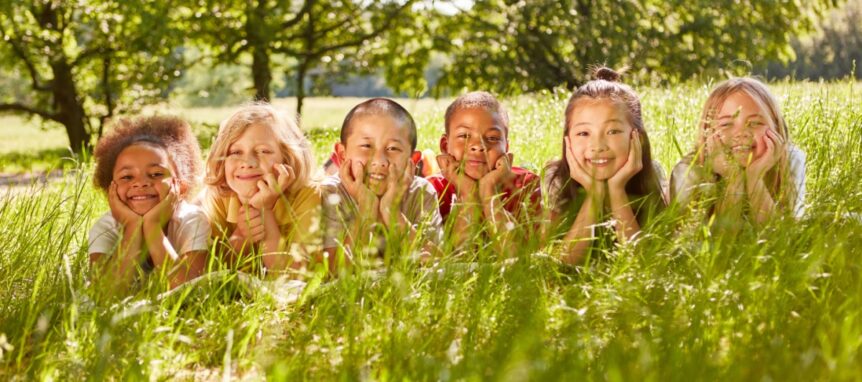Spending time in nature offers children more than fresh air and sunshine—it presents opportunities to take on challenges, explore the unknown, and build crucial life skills. Risk-taking, when properly guided and age-appropriate, is not about danger—it’s about growth. At camp, kids can safely step out of their comfort zones and into activities that help them develop confidence, resilience, and a deeper connection to the natural world.
Understanding Healthy Risk-Taking
In childhood development, healthy risk-taking refers to experiences that push a child to try something new or face uncertainty, with minimal danger but meaningful reward. This could be as simple as climbing a tree, paddling a canoe, or speaking up during a group activity. Unlike reckless behavior, these actions are supervised, intentional, and carefully managed by trained staff to be challenging but not harmful.
Risk-taking helps children learn to assess situations, make decisions, and gain a sense of independence. It builds problem-solving skills and teaches them how to navigate both success and failure.
The Confidence Boost of Trying Something New
When a child tries something new—whether it’s shooting a bow and arrow or participating in their first nature hike—they face the possibility of failure. But they also open the door to discovery. Completing a task they once thought was out of reach is a powerful confidence builder.
Each small win reinforces the belief that they are capable. This confidence carries over into everyday life. A camper who once hesitated to paddle a kayak may later approach academic or social challenges with greater assurance because they’ve already learned they can overcome uncertainty.
Resilience Through Setbacks and Success
Resilience isn’t built when everything goes smoothly—it’s built through setbacks, recovery, and persistence. Outdoor camp activities naturally provide these moments: maybe a camper doesn’t hit the target on their first try at archery, or they tip their canoe while learning to paddle.
But with encouragement and guidance, they get back up, try again, and improve. Learning to fail safely and try again is one of the most important lessons a child can learn. It teaches patience, adaptability, and grit—all traits that contribute to a resilient mindset that lasts far beyond the campgrounds.
The Role of Nature in Personal Growth
Nature provides the perfect backdrop for risk-taking. The unpredictability of outdoor settings teaches kids to stay present, alert, and engaged. Uneven terrain, changing weather, and the presence of wildlife all encourage children to be mindful and observant.
Outdoor activities also remove the distractions of technology, allowing kids to tune in to their surroundings and their inner voice. This natural setting fosters self-awareness and emotional regulation—key components of emotional resilience.
The Social Benefits of Group Challenges
Many camp experiences involve working as part of a team—setting up tents, navigating a trail, or completing group challenges. These experiences promote communication, cooperation, and empathy. Kids learn to rely on others, ask for help, and offer support when needed.
Facing challenges as part of a group helps children build trust in their peers and their ability to contribute to a collective goal. It’s a reminder that they don’t always have to face difficulties alone, which is an important lesson both at camp and in life.
Structured Risk: A Safe Space to Grow
A key element of outdoor risk-taking at camp is structure. Trained counselors and instructors ensure that children are challenged appropriately for their age and skill level. This allows kids to stretch their abilities in a safe, encouraging environment.
Instead of being shielded from all difficulty, campers are coached through challenges. Whether it’s trying a zipline, learning how to use a compass, or speaking in front of a group, structured risk-taking offers a powerful opportunity for transformation—especially when supported by mentors who model resilience and encouragement.
Long-Term Impact on Personal Development
The confidence and resilience built through nature-based challenges don’t end when camp does. Campers return home with a stronger sense of self, better coping mechanisms, and the belief that they can handle whatever comes their way.
These experiences lay the foundation for courageous, compassionate, and confident adults who are willing to step up, speak out, and keep going—even when things are tough.
Rooted in Strength
Empowering kids to embrace challenges in nature isn’t just about summer fun—it’s a vital part of growing up. Safe, supervised risk-taking helps children build inner strength, self-belief, and the emotional tools needed to navigate life’s ups and downs.
At Camp Live Oak, we provide the space and support for kids to explore, experiment, and expand their limits. Our programs are designed to encourage safe outdoor adventure while nurturing confidence and resilience in every camper. Ready to give your child the gift of growth? Reach out to us today and learn more.

